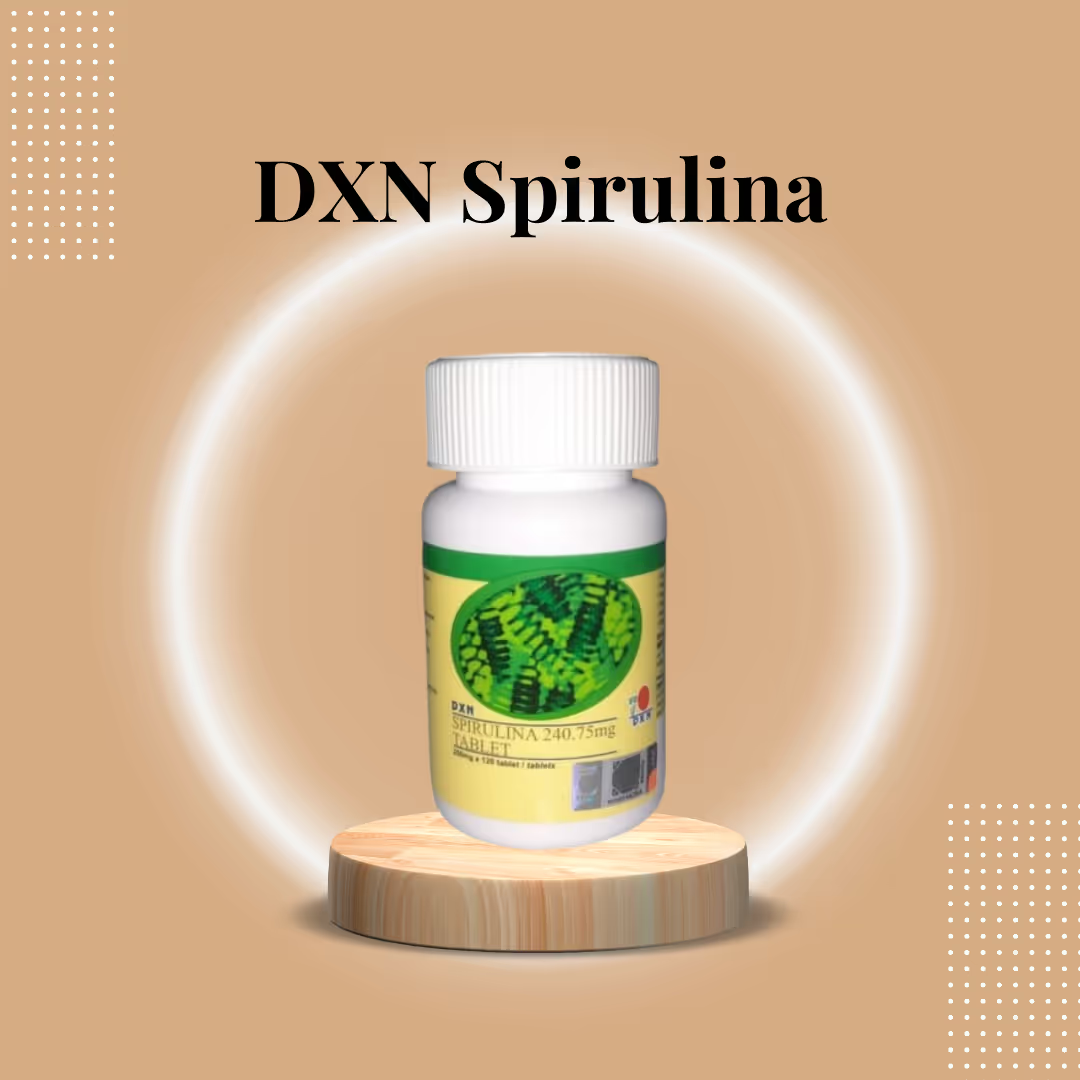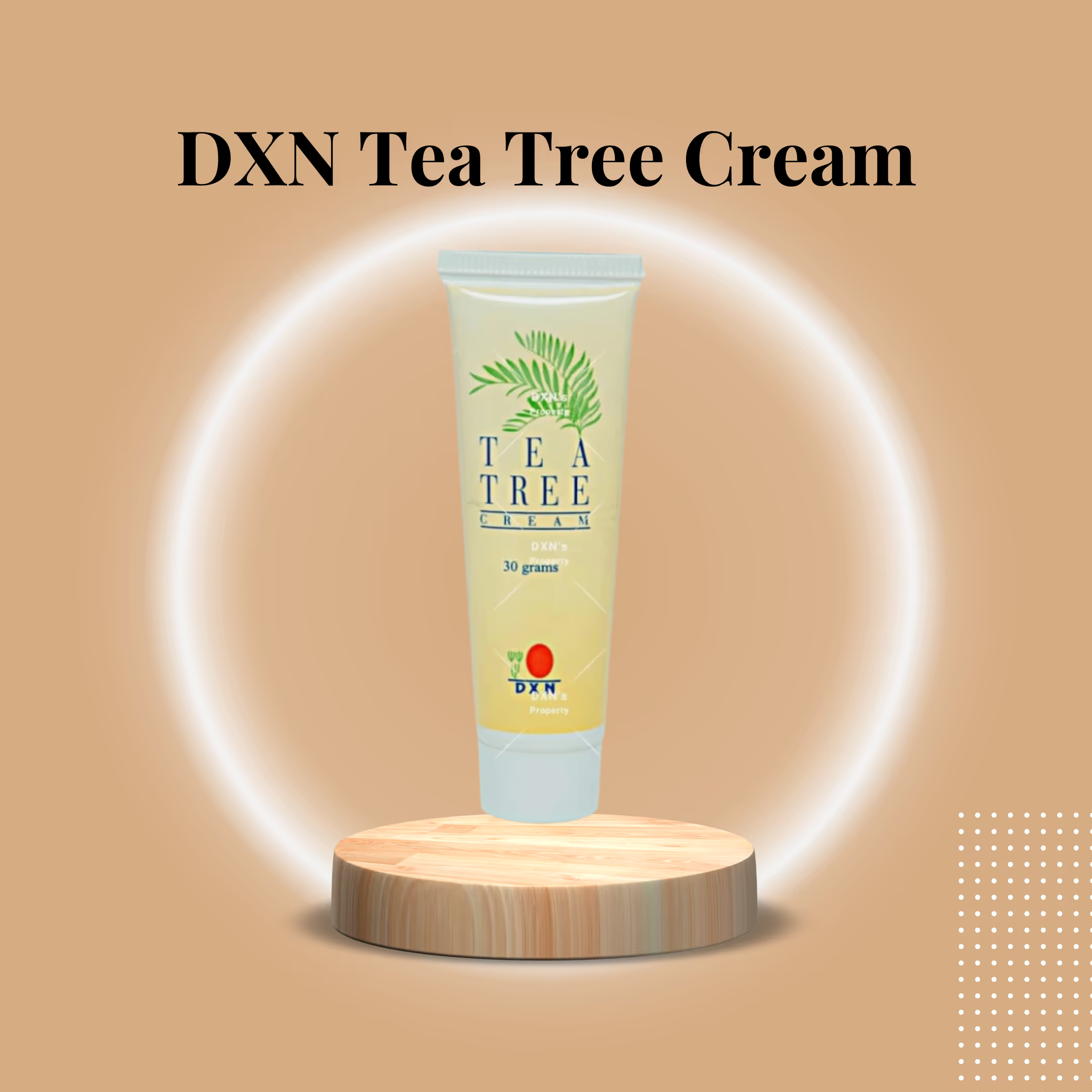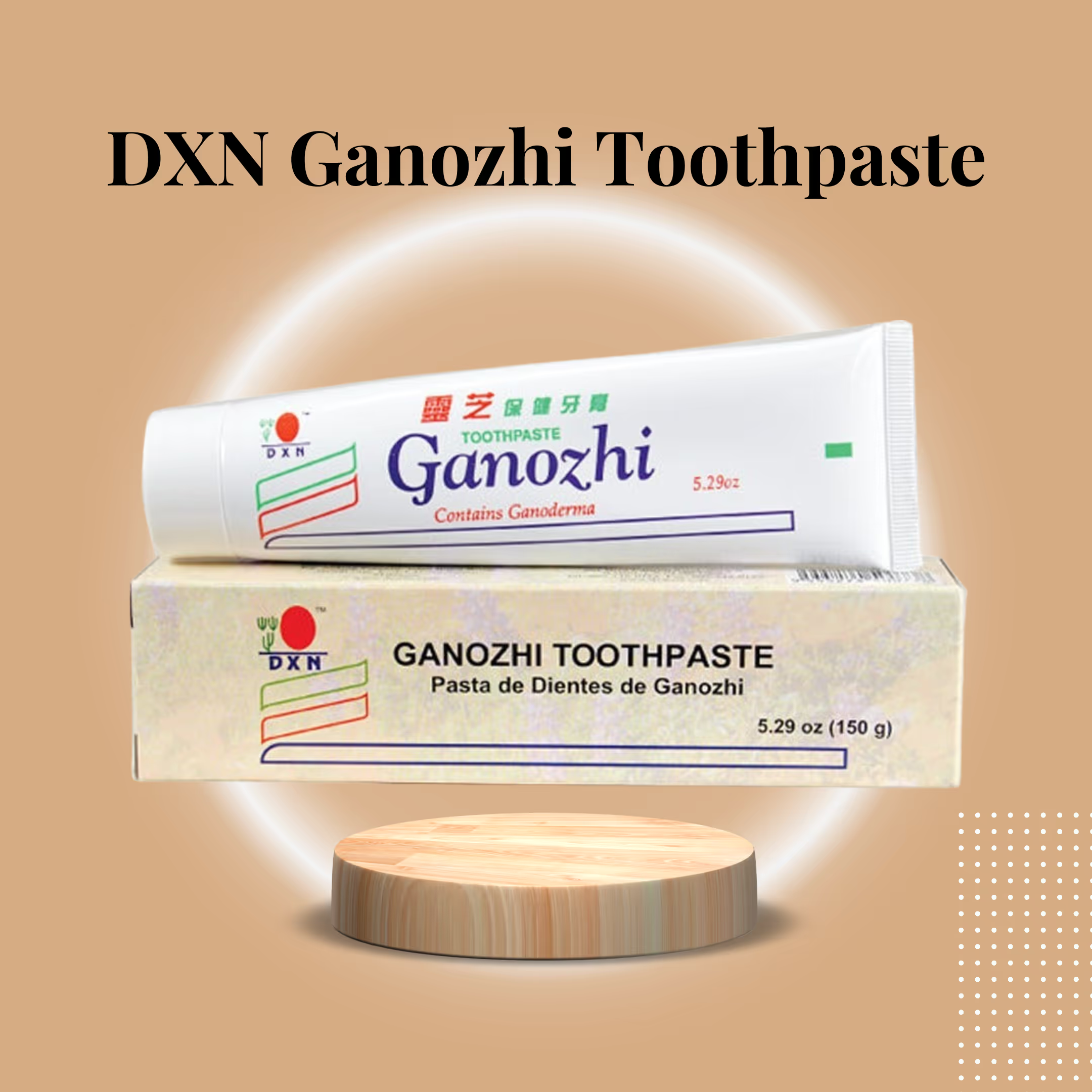DXN Spirulina — Health Properties & Benefits
Although some describe its flavor as similar to pond water, spirulina is rich in nutrients and offers potential health benefits.
What spirulina contains
- High protein — Spirulina is roughly 65% protein (many sources report 60–70%), providing all essential amino acids and offering a highly usable protein with a net protein utilization of about 50–61%.
- Essential fatty acids — It contains gamma-linolenic acid (GLA) and omega-3, -6, and -9 fatty acids, with exceptionally high levels of omega-3s. GLA is often noted for its anti-inflammatory effects.
- Rich in chlorophyll — Spirulina is very high in chlorophyll, which supports blood detoxification and immune function.
- Bioavailable iron — It supplies concentrated, easily absorbed iron, useful in pregnancy and for people with anemia, and typically does not cause constipation.
- Vitamins & minerals — Spirulina provides vitamins (A, C, D, E, and B-complex, including B12 and B6) and minerals such as potassium, calcium, chromium, copper, magnesium, manganese, phosphorus, selenium, sodium, and zinc.
- Pigments & antioxidants — It contains pigments like phycocyanin and abundant beta-carotene (reported to be many times the concentration found in carrots), which contribute antioxidant activity.
- Other nutrients — Contains nucleic acids (RNA and DNA), chlorophyll, polysaccharides, and other bioactive compounds.
Nutrient highlights & measures
- ORAC score — Spirulina has been reported to have an ORAC (Oxygen Radical Absorbance Capacity) value exceeding 24,000, which some comparisons say is around four times that of blueberries.
- Calcium — Reports vary, but spirulina is frequently cited as containing substantially more calcium than cow's milk (estimates range widely in sources).
- Phosphorus — Its phosphorus content can support tooth remineralization.
Cleansing, detoxification & binding actions
- Spirulina helps the body's natural cleansing processes by binding toxins: it can chelate heavy metals and has been suggested to bind certain radioactive isotopes, so it may aid in removing these substances from the body.
- High chlorophyll and antioxidant content support detoxification, help sanitize the bowel, and promote beneficial gut bacteria.
Immune, anti-infective & anti-allergic actions
- Spirulina stimulates immune responses and has been credited with anti-tumor, antiviral, and interferon-inducing effects in various reports.
- It may act as a natural antihistamine and has been studied for potential benefits in allergies and allergic reactions.
Cardiovascular, metabolic & weight-related effects
- Spirulina has been associated with cholesterol-lowering effects and may help reduce cardiovascular risk factors.
- It may increase fat burning during exercise, curb appetite, and support natural weight-reduction efforts when used as part of a healthy program.
Support for specific conditions & functions
- Pregnancy & anemia: High, bioavailable iron and nutrient density make it useful as a supplement during pregnancy and for anemic individuals.
- Wound healing & tissue repair: Promotes tissue repair and has anti-infective properties beneficial for wounds and burns.
- Gastric/duodenal ulcers: Its amino acid profile (including cysteine) and high-quality protein can support ulcer management and digestive health.
- Liver health: Clinical reports from Japan suggest benefits in fatty liver and cirrhosis, with some cases showing improvement within weeks to months.
- Eye health: Japanese clinical reports and other studies indicate potential benefits for eye conditions such as cataracts and diabetic retinal damage.
- Chronic fatigue & energy restoration: Users and some literature report increased energy, possibly due to polysaccharides, essential fatty acids and nutrient density.
- Mental health & cognition: Adequate B12 and folate intake (both present in spirulina) support cognitive function in the elderly and may assist mood regulation and depression management.
Anti-aging, sexual vitality & other claims
- Contains agents linked to anti-aging (e.g., tyrosine, vitamin E, selenium) that may slow cellular aging and help regulate appetite.
- Sexual vitality: Spirulina's relatively high arginine content supports seminal fluid production and is cited as beneficial for sexual vigor.
- Cancer: Some authors and animal studies report spirulina's pigments and GLA may exert anti-cancer effects, helping inhibit excessive cell division and slowing tumor progression; phycocyanin is frequently mentioned for its anti-cancer properties. (Many of these findings come from preclinical work or small clinical reports.)
Why it's considered a "superfood”
- Spirulina is nutrient-dense: very high in protein, rich in iron and vitamins, contains potent antioxidants, and has no cholesterol. It's often promoted as a vegetarian source of B12, concentrated beta-carotene, and a compact source of multiple essential nutrients—making it suitable for children, athletes, busy adults, pregnant women, seniors, those with illnesses, and generally healthy individuals alike.
Functional effects summarized
- Stimulates and potentiates the immune system (anti-tumor, anti-viral, interferon induction).
- Detoxifies the colon, encourages friendly gut flora, and supports bowel sanitation.
- Promotes tissue repair and resists infection.
- Lowers cholesterol and supports cardiovascular health.
- Acts as an anti-inflammatory (useful in arthritis).
- Restores nutritional deficiencies, boosts metabolism, and recovery after exertion.
- Works as an antioxidant, removing pollutants from the body.
- Helps balance nucleic acids (RNA/DNA) and supports appetite control.
Practical uses & who benefits
- Useful during fasting as a nutrient source that helps cleanse while reducing hunger.
- Helpful for people who are overweight, diabetic, hypoglycemic, or living with degenerative conditions, according to some clinical and herbal sources.
- Often recommended as a vegetable replacement or supplement when diets lack green leafy vegetables and chlorophyll—especially for city dwellers exposed to pollution and processed foods.
Notable references & observations cited by herbalists and researchers
- NASA has researched spirulina and highlighted its high nutrient density as suitable for long-term space missions.
- Herbal and clinical texts note spirulina's role in supporting recovery from serious illness, aiding cancer nutrition strategies, and improving outcomes when combined with dietary changes.
Key nutrient summary (at a glance)
- Green element (chlorophyll): Supports toxin elimination and cleans the blood.
- Protein: Extremely high quality (≈60–70% by weight).
- Essential fatty acids: Rich in GLA; supports joints and heart, may aid weight loss and PMS.
- Vitamins: A, C, E, D and B-complex (including B12 and B6).
- Minerals: Potassium, calcium, chromium, copper, iron, magnesium, manganese, phosphorus, selenium, sodium, zinc.
- Pigments: Chlorophyll, phycocyanin (blue pigment), beta-carotene (highly concentrated).
Where to buy DXN Spirulina in Pakistan
You can order directly from the official site: dxncare.com. Cash-on-delivery is available, with delivery typically within 2–4 working days in Pakistan.
.avif)





